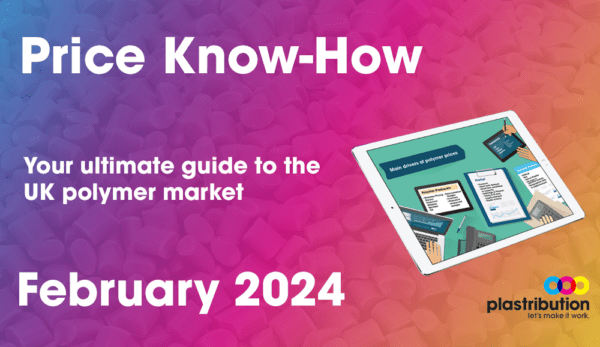
Polymer Price Know-How: February 2024
In Platribution’s February Price Know-how update, read about how disruptions from the Houthi terrorist activities in the Red Sea are impacting European polymer supply chains, notably for PE and PP imports via the Suez Canal. European engineering and specialty polymer stock levels remain robust, mitigating immediate shipping delay impacts. Logistic challenges and production force majeures are tightening material availability, forcing European converters into delicate procurement strategies to avoid inflated costs amidst rising polyolefin prices.
As previously outlined in Price Know-how, polymer pricing has had a range of implications resulting from the Houthi terrorist attacks on shipping in the Red Sea. The most significant impact has been where local European inventories are low compared to demand, and the lead time is most significantly impacted. In practical terms, this affects PE and PP, where significant volumes consumed in the European region are produced in the Middle East or the Far East. Typically, material moves through the shorter Suez Canal shipping route.
As with Crude Oil, there is the perception that local European stocks of engineering and speciality polymers are sufficient to cover the effects of shipment delays. Therefore, upward price pressure is less acute. That said, the shipping delays are now not the only issue, with bunker fuel shortages resulting in some ships returning to the port of origin and others missing port stops entirely to avoid congestion and/or to save the fuel needed to take the longer Cape of Good Hope shipping route to European port destinations. This additional burden on logistics will likely result in further tightening of product availability, probably affecting a broader range of materials.











